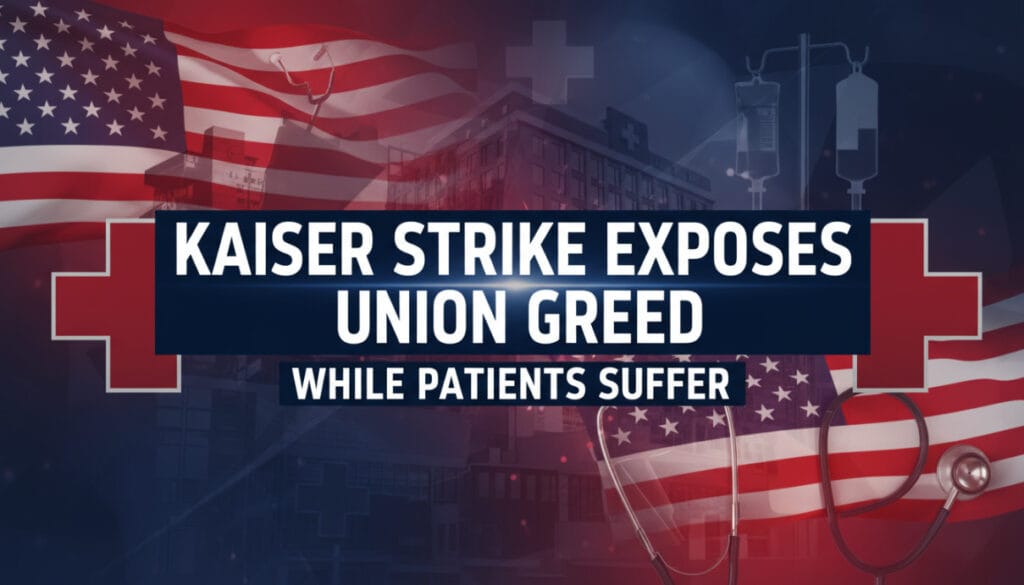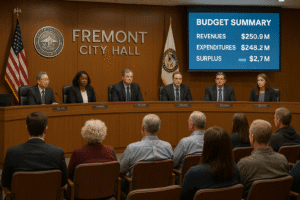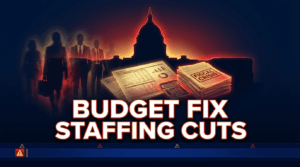Kaiser Strike Exposes Union Greed While Patients Suffer: Healthcare Workers Prioritize Paychecks Over Patient Care


The five-day healthcare worker strike at Kaiser Permanente that concluded on October 19, 2025, represents everything wrong with modern union culture in America. While over 30,000 healthcare workers across California, Oregon, and Hawaii walked off the job, patients were left scrambling for care, and the real victims were the hardworking Americans who depend on reliable healthcare services.
Follow the Money: It’s Always About the Paychecks
Despite union leaders’ attempts to frame this strike as being about “patient care” and “staffing shortages,” the truth is far simpler and more disturbing. As Kaiser Permanente officials correctly pointed out, “wages are the reason for the strike and the primary issue in negotiations.” The Alliance of Health Care Unions is demanding a staggering 25% wage increase over four years – a demand that would cripple healthcare costs for working families across the Bay Area and beyond.
This astronomical wage demand comes at a time when inflation has already devastated American households. While families in Fremont and throughout Northern California struggle to afford basic necessities, these healthcare workers are demanding pay raises that far exceed what any reasonable economic analysis would support. The average Kaiser worker already earns competitive wages with comprehensive benefits, yet union bosses continue to push for more at the expense of patient care and healthcare affordability.
Union Bosses Playing Politics with Patient Lives
The timing and execution of this strike reveal the callous disregard union leadership has for the patients they claim to serve. By walking out for five consecutive days, these workers abandoned their posts during a critical time when healthcare systems are already strained. Emergency rooms had to operate with skeleton crews, routine procedures were delayed, and patients faced uncertainty about accessing the care they desperately needed.
The Alliance of Health Care Unions tried to disguise their greed by claiming the strike was about “protecting patient care” and addressing “staffing shortages.” This is classic union doublespeak – creating the very problems they claim to be fighting against. How does walking away from patients protect them? How does reducing available staff address staffing concerns? The logic is backwards, but it’s typical of modern union tactics that prioritize political theater over genuine problem-solving.
Kaiser’s Reasonable Response to Unreasonable Demands
To their credit, Kaiser Permanente has maintained a measured and responsible approach throughout this manufactured crisis. The healthcare giant offered competitive wage increases and comprehensive benefits packages that recognize employee contributions while maintaining fiscal responsibility. Kaiser officials emphasized their commitment to both employee welfare and patient care, noting that they “recognize our employees’ hard work and have offered” substantial compensation improvements.
Unlike the union’s inflammatory rhetoric, Kaiser has focused on facts and sustainable solutions. The company has consistently maintained operations during the strike, ensuring that emergency services remained available and that patient care continued despite the union’s attempt to hold healthcare hostage. This demonstrates the kind of responsible leadership that built Kaiser into one of America’s premier healthcare systems.
The Real Impact on Working Families
While union leaders and striking workers make headlines, the real victims are the working families who depend on Kaiser for affordable, reliable healthcare. Parents in Fremont worried about their children’s medical appointments. Seniors faced uncertainty about prescription refills. Cancer patients and others with serious conditions found themselves caught in the crossfire of a labor dispute that should never have escalated to a strike.
The economic impact extends far beyond the immediate inconvenience. Every dollar that Kaiser is forced to pay in excessive wage increases will ultimately be passed on to consumers through higher premiums, increased co-pays, and reduced services. This is the hidden tax that union greed imposes on American families – a tax that hits hardest on middle-class households already struggling with inflation and economic uncertainty.
A Pattern of Union Overreach
This Kaiser strike fits a disturbing pattern of union overreach that has become increasingly common across California. From teachers’ unions that kept schools closed long after it was safe to reopen, to public sector unions that demand unsustainable pension benefits, organized labor has lost sight of its original mission to protect workers’ rights. Instead, modern unions have become political machines focused on extracting maximum concessions regardless of the broader economic impact.
The 25% wage demand is particularly egregious when compared to what private sector workers receive. Small business owners, independent contractors, and non-unionized employees rarely see such dramatic pay increases, yet they’re expected to subsidize these inflated wages through higher healthcare costs. This creates a two-tiered system where union members enjoy privileges that ordinary Americans cannot access.
The Staffing Shortage Smokescreen
Union representatives repeatedly cited “staffing shortages” as justification for the strike, but this argument collapses under scrutiny. If staffing is truly the primary concern, why did workers abandon their posts for five days? If patient care is the priority, why risk disrupting critical services? The answer is simple: staffing concerns are a convenient talking point to mask what is fundamentally a money grab.
Moreover, Kaiser has consistently worked to address legitimate staffing needs through recruitment, retention programs, and operational improvements. The company has invested billions in expanding facilities and hiring additional staff. But no amount of hiring can satisfy union demands if the goal is simply to extract maximum wages rather than solve actual problems.
Moving Forward: Accountability and Reform
As negotiations resume, Kaiser Permanente must stand firm against unreasonable union demands while continuing to prioritize patient care. The company has already demonstrated its commitment to fair compensation and workplace improvements. Now it’s time for union leaders to show similar responsibility by focusing on sustainable solutions rather than political grandstanding.
The broader lesson for California policymakers is clear: unchecked union power ultimately hurts the very people unions claim to represent. Healthcare workers deserve fair compensation, but not at the expense of patient care or healthcare affordability. Reasonable regulations that prevent healthcare strikes and protect essential services should be seriously considered.
Conclusion: Patients Over Politics
The Kaiser strike of October 2025 will be remembered as a case study in union overreach and misplaced priorities. While healthcare workers eventually returned to their jobs, the damage to patient trust and healthcare accessibility cannot be easily repaired. Moving forward, all stakeholders must prioritize patient care over political posturing and work toward solutions that serve the broader community rather than narrow special interests.
The families of Fremont and throughout Northern California deserve better than healthcare held hostage by union politics. They deserve a system that puts patients first, maintains fiscal responsibility, and provides reliable access to the medical care they need. That’s a goal worth fighting for – without walking off the job.













